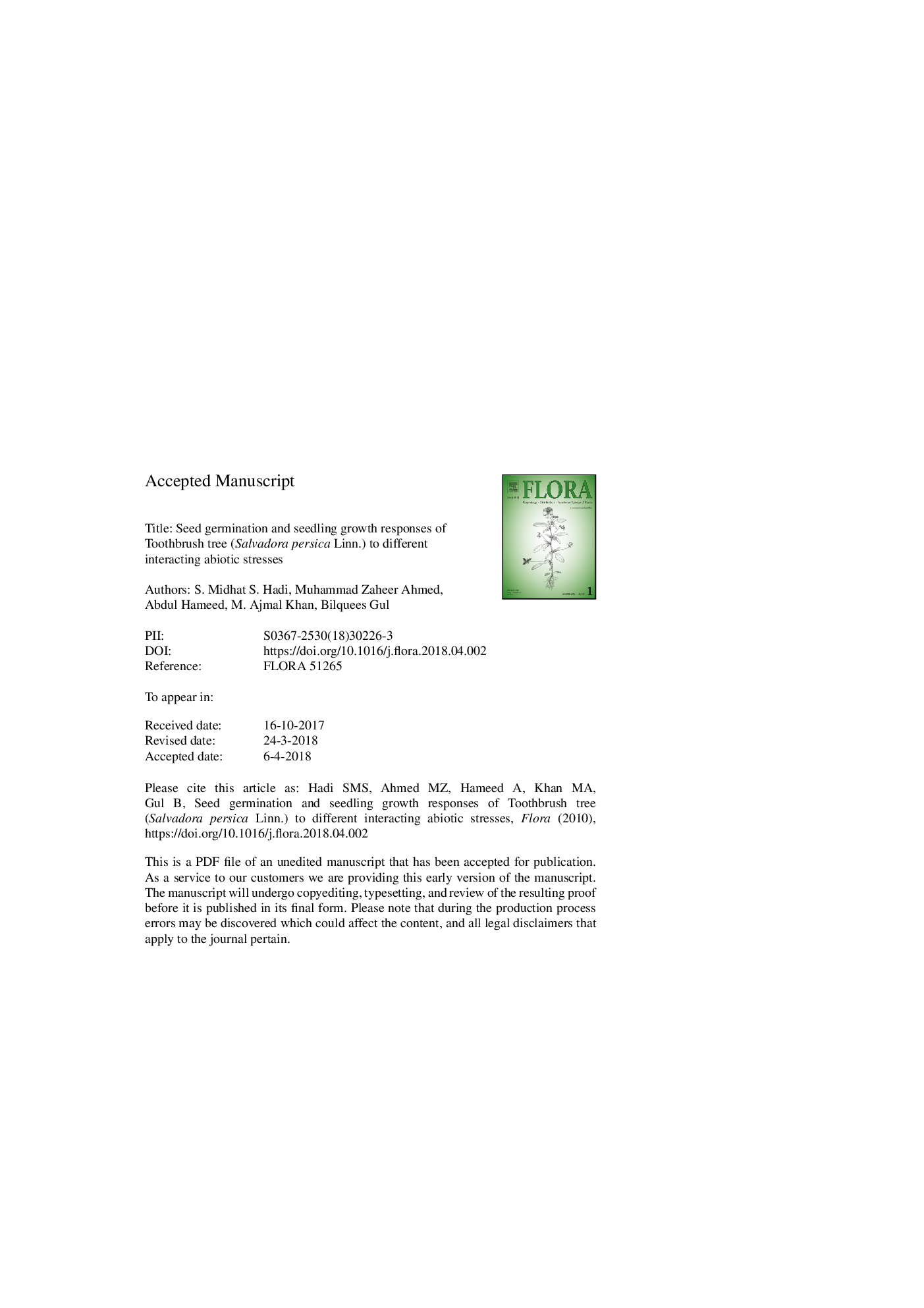| Article ID | Journal | Published Year | Pages | File Type |
|---|---|---|---|---|
| 8470141 | Flora - Morphology, Distribution, Functional Ecology of Plants | 2018 | 31 Pages |
Abstract
Toothbrush tree or miswak (Salvadora persica Linn.) is an important medicinal species found abundantly on dry saline lands of the warm subtropical region. Seed germination responses of this plant are not fully known. We therefore studied the effects of salinity (0-500â¯mM NaCl), temperature (10/20, 15/25, 20/30 and 25/35â¯Â°C) and photoperiods (12â¯h photoperiod and 24â¯h dark) on seed germination and seedling growth. Seeds were scarified before germination to address physical dormancy. Seeds germinated better at low (10/20, 15/25â¯Â°C) to moderate (20/30â¯Â°C) in comparison to high (25/35â¯Â°C) temperature regimes. Seeds in 12â¯h photoperiod had higher germination percentages than those germinated in complete dark. Germination decreased with increases in salinity and seeds failed to germinate at 400â¯mM NaCl or higher salinity. However, un-germinated seeds when transferred to distilled water from high (400â¯mM NaCl) salinity germinated readily. Recovery percentage decreased with increasing temperature and there was no recovery under the highest temperature regime. Seedling growth was optimal at 15/25â¯Â°C and decreased with increases in salinity. Dry storage of seeds for 12 months resulted in substantial reductions in both germination and salinity tolerance. Our data indicates that the seeds of S. persica are sensitive to variations in different abiotic factors, which seems to act as a possible cue for germination and subsequent seedling growth.
Related Topics
Life Sciences
Agricultural and Biological Sciences
Ecology, Evolution, Behavior and Systematics
Authors
S. Midhat S. Hadi, Muhammad Zaheer Ahmed, Abdul Hameed, M. Ajmal Khan, Bilquees Gul,
